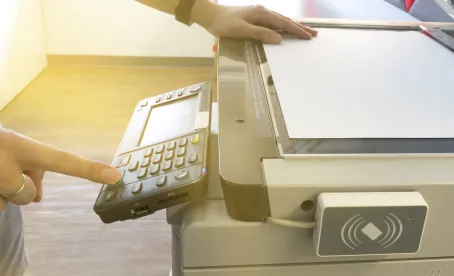A Christmas Eve decision from the Northern District of California addressed an important and recurring issue in the TCPAWorld: Whether the Hobbs Act requires a district court to accept the FCC Consumer and Government Affairs Bureau’s (the “Bureau’s”) legal interpretation of the TCPA. The district court held that the Bureau’s Amerifactors Ruling “is authoritative and establishes that those who received faxes via an online fax service have different legal rights than those who received faxes via a traditional physical fax machine.” See True Health Chiropractic Inc. v. McKesson Corp., Case No. 13-cv-02219-HSG, 2020 U.S. Dist. LEXIS 242297, *21-22 (N.D. Cal. Dec. 24, 2020).
This case offers the TCPAWorld a number of important takeaways. First, despite holding that recipients of online faxes “have different legal rights,” the district court refused to decertify the class. Instead, the district court decided to treat the online fax recipients as a distinct subclass, opining: “the question of whether the Online Fax Service subclass has a claim under the TCPA is simply a common merits question whose answer will be the same for all members of that subclass.” Id. at *22. Practically then, despite receiving the benefit of the Amerifactors Ruling, the defendant did not escape class certification. And the district court did not address ascertainability or due process issues implicated by a “subclass” of online fax recipients who likely cannot state a claim under the TCPA.
Second, the district court held that the 2019 Supreme Court’s decision in PDR did not control. See PDR Network, LLC v. Carlton & Harris Chiropractic, Inc., 139 S. Ct. 2015 (2019). The district court explained that the Supreme Court in PDR “granted certiorari, but ultimately did not resolve whether the Hobbs Act requires a district court to follow a particular FCC order interpreting the TCPA.” 2020 U.S. Dist. LEXIS 242297, at *15. Without Supreme Court guidance, the district court concluded that Ninth Circuit precedent required the district court to “treat Amerifactors as authoritative.” Id. at *16. That is because in the Ninth Circuit, “district courts do not have jurisdiction to question the validity of FCC final orders.” Id. at *18 (citing US West Communs., Inc. v. Hamilton, 224 F.3d 1049, 1055 (9th Cir. 2000) (explaining that while “we doubt the soundness of the FCC’s interpretation . . . we are not at liberty to review that interpretation)).
Third, the district court mentioned its agreement with “the reasoning of Justice Kavanaugh’s concurrence in PDR Network, because requiring federal courts to treat administrative agencies’ legal interpretations as invariably binding under these circumstances would appear to pose practical as well as constitutional problems.” Id. at *19, n.7. “But,” the district court admitted, “these questions are obviously for another day, and for a higher court than this one.” Id.
Finally, the district court’s decision treating the Bureau’s Ruling as binding contradicts the Fourth Circuit’s decision last month on remand in PDR. See Carlton & Harris Chiropractic Inc. v. PDR Network, LLC, No. 16-2185, 2020 U.S. App. LEXIS 38074, (4th Cir. Dec. 7, 2020). Namely, as we covered in closer detail, in that case the Fourth Circuit held that TCPA interpretive rulings (at least those lacking notice and comment) are not entitled to Hobbs Act or even Chevron deference.
We’ll continue to cover this critical issue for the TCPAWorld.




 />i
/>i
